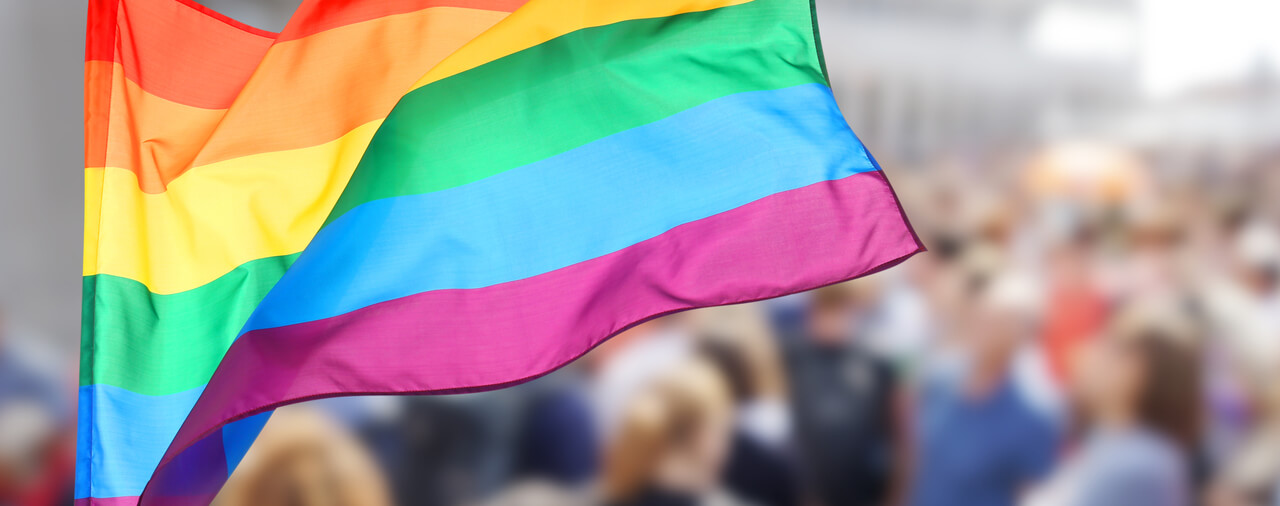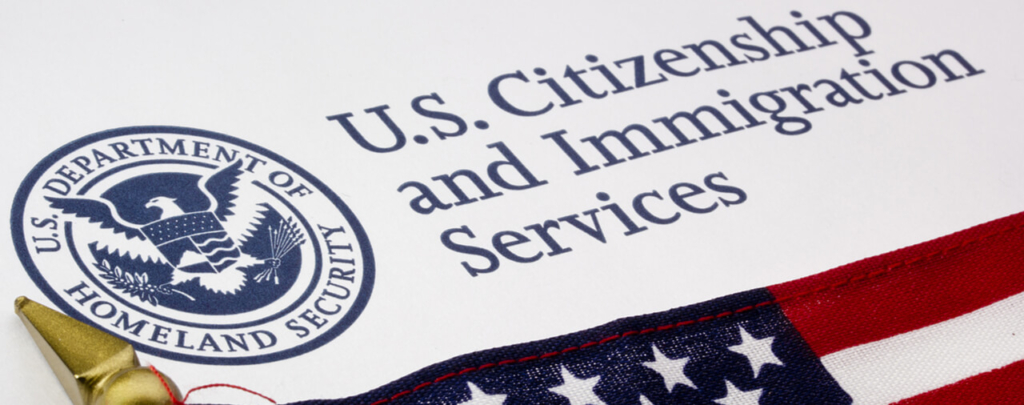Overview
As discussed in Asylum and Refugee Protection [see article], not every persecution warrants protection by the U.S. law. Instead, following international law, U.S. asylum jurisprudence recognizes only five enumerated grounds, based upon which persecution may lead to a grant of the discretional protection by the U.S. Government. These grounds exist when one central reason in the persecution of the applicant in his or her country of last abode can be shown to have been on account of one of the following: the applicant’s race, ethnicity or national origin, political opinion, religion and/or membership in a particular social group. This showing must be through credible evidence and to the satisfaction of either an immigration officer or a judge.
Current immigration law is well settled in recognizing human sexual orientation as a particular social group in asylum context. This had not always been the case. In fact, for years, sexual orientation had not been recognized to constitute a particular social group in asylum context, subjecting many to facing continuous persecution upon inevitable return to their countries of origin. Yet worse, over seventy years or so, lesbian, gay, bisexual and transgender (LGBT) individuals could not even legally enter the United States, let alone ask for refugee-type protection.
Brief History of Treatment of Homosexuality by U.S. Immigration Law
Since 1917, when U.S. law embraced the view that gays and lesbians were “mental defectives”, it barred completely their entry into the United States. The situation did not improve even when the Congress changed the Immigration and Nationality Act in 1952, repealing the mental defectives categorization of sexual minorities. Instead, the Immigration and Nationality Act of 1952, as amended, now viewed gays and lesbians as individuals “afflicted with a psychopathic personality,” thus still barring their entry into the United States on a presumption that such individuals were affected by a mental disorder. In fact, it took an intervention by the U.S. Court of Appeals for the Ninth Circuit in 1963 to void such treatment of gays and lesbians as unconstitutional, at least in the part of the country, over which the Court had jurisdiction.
Unfortunately, the U.S. Congress in the 1960’s was still determined to see that all gays and lesbians would not be allowed into the United States. Responding to the Court’s ruling, which had voided the prohibition for vagueness and unconstitutionality, the Congress enacted a new, this time very clear prohibition against entry of gays and lesbians into the United States. Using the American Psychiatric Association official list of disorders, which had designated homosexuality as a mental disorder, Congress dubbed gays and lesbians as persons “afflicted with a sexual deviation.” Thus, for the next twenty years, gay and lesbian individuals would be kept from coming into this country legally by the law that considered them sexually deviant and thus mentally sick and undesirable.
When in 1973 the American Psychiatric Association removed homosexuality from its official list of disorders, the Congress remained firm. Indeed, the law continued to advance discriminatory treatment of homosexuals even when in 1979 the Public Health Service, then the federal agency charged with issuing disorder certifications, officially informed the U.S. Government that the Agency would no longer certify homosexuality as a psychiatric disorder. In fact, the U.S. Government continued to enforce the law against entry of homosexuals despite the fact that such certification was a mandatory prerequisite for exclusion of homosexuals from the country. The U.S. Department of Justice (USDOJ), then the federal agency responsible for implementation of immigration laws, went even further and in 1980 promulgated guidelines, which declared that the USDOJ considered exclusion of homosexuals from this country to be the Agency’s legal obligation despite the lack of certification. In its Guidelines and Procedures for the Inspection of Aliens Who are Suspected of Being Homosexuals, Press Release of USDOJ (Sept. 9, 1990), the Agency qualified its position, however, by emphasizing that only persons who “solely upon the voluntary admission” revealed that they were homosexuals, would not be allowed to enter the United States.
Only under the mounting political pressure the U.S. Congress finally changed the law in 1990 by amending the Immigration and Nationality Act to eliminate altogether exclusion of individuals based on homosexuality. The Congress finally subscribed to the idea, by that time more and more prevailing in the country, that “a person’s sexual orientation should be a private matter, and that homosexuality should no longer have any relevance to immigration.” (H.R. Rep. No. 882, 100 Cong., 2d, Sess. 35-36 (1988).
Homosexuality and asylum
Despite this overwhelming change in general immigration law, none came to the refugee law at the time. In immigration courts and asylum offices nationwide, individuals continued to be denied asylum despite their credible fears of persecution in their respective countries on account of their sexual orientation. In fact, it took another four years for the U.S. asylum jurisprudence to finally recognize homosexuals as a particular social group. After a string of immigration court and BIA decisions refusing to extend such recognition through the 1980s, in the Matter of Toboso-Alfonso, the Board of Immigration Appeals finally began the change by arriving at the conclusions that homosexuality was, after all, an immutable characteristic and did constitute a particular social group in asylum law.
The Board of Immigration Appeals (BIA or the Board) is an important federal agency within the U.S. Department of Justice, which changed, among other things, with serving as an appellate administrative body for specific types of immigration decisions made by immigration judges and immigration officers. The Board’s decision in the Matter of Toboso-Alfonso, 20 I & N Dec. 819 (BIA 1990) is seminal because it propelled the change in the law, which eventually made possible current recognition of credible fear of persecution on account of homosexuality as grounds for asylum.
Specifically, the Board concluded that homosexual individuals constituted a particular social group, thus paving the way for potential eligibility of homosexual individuals for asylum in the United States. Mr. Toboso-Alfonso was a Cuban young man, whom the Cuban government had classified as a homosexual. The BIA concluded that Mr. Toboso-Alfonso did belong to a particular social group of homosexual persons. The Board then found that the mistreatment Mr. Toboso-Alfonso had been subjected to while in Cuba, did amount to persecution and would create a reasonable possibility of reoccurrence of persecution of Mr. Toboso-Alfonso by the Cuban Government on account of his sexual orientation, if he were deported to Cuba. The Board agreed with Mr. Toboso-Alfonso unchallenged argument that homosexuality was an immutable characteristic and not a “deviated behavior” as the USDOJ had argued in its brief to the Board.
On June 14, 1994, Janet Reno, then the United States Attorney General, officially designated this seminal Board decision in the Matter of Toboso-Alfonso as the AG’s binding precedent decision, thus finally settling the issue that homosexuality did in fact constitute a particular social group for asylum purposes.
Henceforth, persons who were afraid of persecution in their countries of origin or last abode on account of their sexual orientation could seek to establish eligibility for asylum in the U.S., provided that all other elements of the asylum eligibility have been met, and further provided that the fact finder concluded after review of all the circumstances of the case, that a grant of asylum would be warranted as a matter of discretion.
However, the situation is still very different in many other countries. Currently, there are 76 nations which criminalize homosexual activity. In 7 of them (Mauritania, Sudan, Nigeria, Somalia, Iran, Saudi Arabia, and Yemen) homosexual acts are punishable with death penalty. In many other parts of the world, homosexual persons face daily discrimination, harassment, and persecution by authorities and common citizens alike. For instance, while the homosexual conduct was decriminalized in the most countries of the former USSR, the violence and intolerance against LGBT persons remains rampant in many parts of that region with the perpetrators often enjoying impunity and even encouragement from the authorities.
Current state of affairs
Present asylum law regards sexual orientation as an immutable characteristic, meaning that it is innate to the person’s being and as such cannot or should not be required to be altered or abandoned. As any other applicant for asylum, a gay, bisexual, or transgender person who is afraid to return to his or her home country is required to show either past persecution or a well-founded fear of future persecution based on race, religion, nationality, membership in a particular social group, or political opinion. Recognition by the U.S. Attorney General that homosexuals constitute a particular social group effectively means that since then a gay applicant who fears for his or her life on account of their sexual orientation may now seek asylum in the U.S. based on credible fear of persecution on account of one of the protected grounds — membership in a particular social group — the LGBT individuals. At the same time, depending on the country conditions, homosexual persons can also be afraid to return to their homelands because of their race, nationality, religion, or political opinion. Genuine fears of this nature should not be overlooked as well.
In the review of the asylum claims based on sexual orientation, the USCIS officers and, when applicable, Immigration Court judges will examine the following issues: whether the applicant has established membership in this particular social group (LGBT); whether the harm feared by the asylum seeker reaches the level of persecution; whether persecution is on account of the group membership; and, when persecution is perpetrated not by the government, but societal elements the government is unable or unwilling to control, whether internal relocation is possible and available.
To establish membership in LGBT social group, an applicant must demonstrate to the satisfaction of the finder of fact (either an asylum officer or an immigration judge, as the case may be) that he or she is in fact, a gay, lesbian, bisexual or transgender individual. This, depending on the circumstances, can truly prove to be a difficult task.
While there is no universally accepted definition of persecution, the following forms of mistreatment may be considered as such: threats to life, confinement, torture, severe economic restrictions, as well as forced engagement in conduct that is not painful or harmful but is abhorrent to that individual’s deepest beliefs. The asylum seeker carries the burden to establish that past persecution indeed took place by providing a credible testimony and supplying any valid corroborative evidence attesting to the facts contained in their application for asylum (e.g., medical records, witness affidavits, court transcripts, etc).
For an asylum seeker to establish a well-founded fear of future persecution, he or she must demonstrate the following: a genuine fear of returning to his or her home country and that a reasonable person in the same situation would also fear persecution. Thus, the applicant must prove that there is a reasonable possibility, and not necessarily a certainty, that he or she will face persecution upon their return home. In this context, reasonable possibility refers to a one in ten (10%) chance of suffering persecution, as defined by the U.S. Supreme Court. If there is no history of past persecution in one’s request for asylum, the applicant carries the burden of demonstrating that his or her fear of return is well-founded. In order to establish that the fear is indeed well-founded, the asylum seeker must display the following evidence: a)that there is a pattern and practice of persecution against homosexuals in the applicant’s homeland; b) that the applicant is a part of the persecuted social group and thus his or her life is at risk upon their return home; c) that both of these statements are supported by the data contained in the U.S. Department of State Country Reports and other trustworthy publications (e.g., NGO reports, major news publications, etc.).
Homosexual asylum applicants go through the same procedure as any other asylum seeker: filing Form I-589 with an appropriate USCIS Processing Center, attending an asylum interview at the assigned Asylum Office, and, if referred to the Immigration Court, presenting the testimony to an immigration judge. As a rule, to qualify for the grant of asylum, an applicant is required to file their Form I-589 within one year of their arrival to the U.S. soil. An applicant may petition for asylum even after the one-year deadline lapses, however, in such a case they will be required to show extraordinary or relevant change in circumstances that prevented them from filing their request in a timely manner.
Recent improvements
Since 1990, the LGBT community in the United States saw a noteworthy improvement in its social and political status. Presently, six states and Washington, D.C., allow same-sex couples to obtain marriage licenses. In 2003, the U.S. Supreme Court declared in its landmark decision in Lawrence v. Texas that the state laws penalizing homosexual activities between consenting adults (commonly referred to as “sodomy laws”) were unconstitutional. The controversial policy of “Don’t Ask Don’t Tell” which prohibited the openly gay and lesbian persons to serve in the U.S. armed forces is pending repeal as of 2010.
The U.S. Federal Government, however, remains barred from recognizing same-sex marriages as per the 1996 law commonly known as the Defense of Marriage Act (DOMA). The provisions of DOMA thus prevent the U.S. citizens or legal permanent residents from petitioning for their same-sex spouses of foreign origin, even if they live in a state or territory which currently allows same-sex marriage within its borders. The DOMA is currently being challenged in courts and with President Barack Obama’s decision not to defend the Act, it is yet to be seen whether this statute will continue to stand. The present challenges to the DOMA may have immigration consequences to the same-sex couples legally married in the U.S., as exemplified by the case of Monica Alcota (citizen of Argentina) and Christina Ojeda (citizen of the U.S.). The two were married in the state of Connecticut and while the U.S. Department of Homeland Security charged Alcota with removability because her student visa had expired, the immigration judge in New York stayed her deportation pending the outcome of the current challenges to the DOMA.
“Marriage” and “spouse” will continue to be defined by state and not federal law
This Wednesday, June 26, 2013, In A Truly Historic And Dramatic 5-4 Decision United States V. Windsor, Executor Of The Estate of SPYER, ET AL [PDF version], with Justice Anthony Kennedy not only voting with the majority but actually delivering the decision of the United States Supreme Court, the Court overturned the §3 of the federal Defense of Marriage Act (DOMA) [see article] as unconstitutional. The Court upheld the underlying decision by the U.S. District Court for the Southern District of New York [PDF version] that ordered the IRS to accord the plaintiff eligibility for the surviving spouse exception from estate tax under the United States Tax Code [see article].
In rather rapid development a week after the U.S. Supreme Court’s decision in Windsor, overturning Article 3 of DOMA, President Obama has instructed USCIS to start immediately reviewing immigrant petitions filed by same sex spouses. “President Obama directed federal departments to ensure the decision and its implication for federal benefits for same-sex legally married couples are implemented swiftly and smoothly.” Secretary of Homeland Security Janet Napolitano wrote on the DHS website. Hence, true for now, USCIS treats any valid and properly contracted marriage in the jurisdiction in which it was effectuated as valid for all immigration benefits including nonimmigrant status/visa applications, employment and family based immigration as well as all refugee petitions.



-1024x405.jpg)
-1024x405.jpg)
